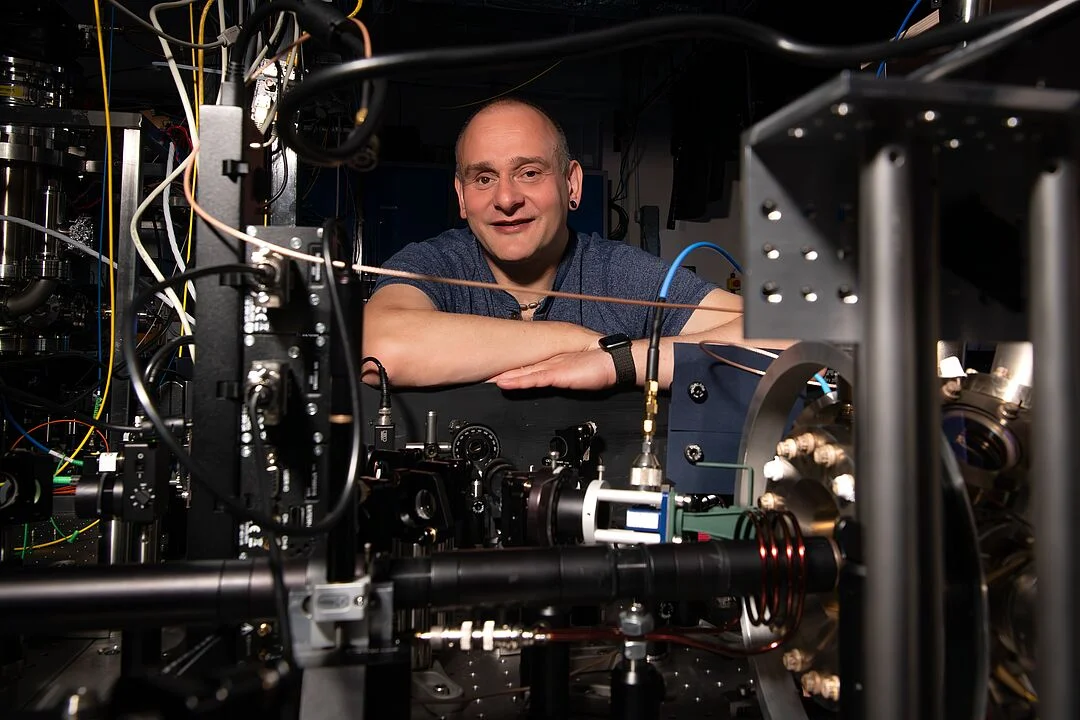
- This event has passed.
The Queen’s Lecture 2023 @ TU Berlin
“Constructing the world’s most incredible machines: Quantum Computers” – A Lecture by Winfried Hensinger of the University of Sussex on 8 November 2023 at 5 p.m.
When:
Wednesday, 8. November 2023 at 5 p.m. (doors open at 4.30 p.m.)
Where:
Technische Universität Berlin, Main Building, Audimax (H 0105), Straße des 17. Juni 135, 10623 Berlin
Making use of strange phenomena of quantum physics, such as “superposition” and “entanglement” (referred to by Einstein as “spooky”), it is possible to build computers that can solve important industry problems in a few hours, that would require millions of years on even the fastest supercomputer. Such problems include optimising financial transactions, creating new medicines, making aircraft engines more fuel efficient, simulate chemical reactions, breaking codes but really span across nearly any industry sector. The realisation of practical quantum computers will likely change the world we work and live in.
The challenge to build practical quantum computers capable of solving such problems has been described as a holy grail in science. Current quantum computers can only operate with around 100 quantum bits while most industry applications would require millions of quantum bits.
By inventing a new method where voltages applied to a quantum computer microchip are used to implement calculations, Hensinger’s group have managed to remove one of the biggest barriers traditionally faced to build a practical quantum computer using trapped charged atoms (ions), namely having to precisely align millions of laser beams to execute calculations with such a machine.
A quantum computer needs to be modular as each microchip can only hold so many quantum bits. Prof. Hensinger’s group will announce the demonstration of a powerful new approach where quantum microchips are connected via electric field links, allowing individual charged atoms to be transported from one chip to another.
Hensinger will discuss breakthroughs in research at the University of Sussex and work via quantum computing company Universal Quantum to construct practical quantum computers.
The event will be held in English.
Further information can be found here.

